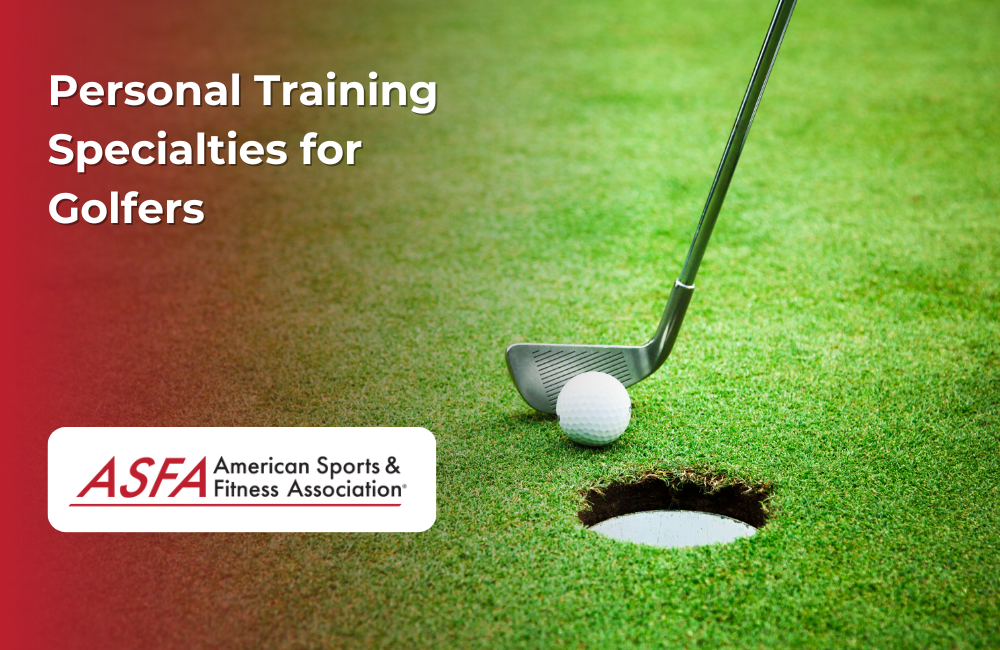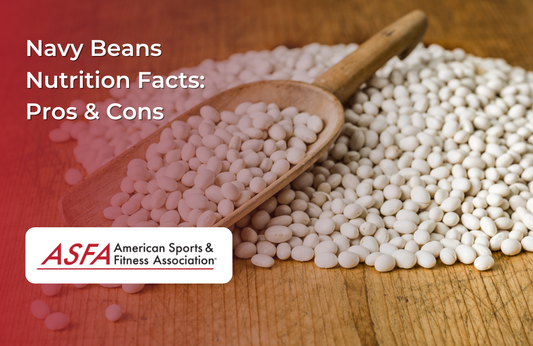Avid golfers are increasingly seeking out top personal trainers to improve their performance through sport-specific exercises tailored to enhance their strength and technique. The trainer business of sport-specific coaching has gained immense popularity as individuals use sports as a way to balance work and home life, while also reaping the physical and mental benefits of athletic activities. Golf, in particular, is an ideal low-impact sport that can be both enjoyable and challenging for people of all ages and fitness levels. Specializing in golf fitness as a personal trainer not only allows you to tap into a growing niche, but it also provides golfers with the tools they need to elevate their game.
Understanding Golf Fitness
Golf fitness is a specialized field that focuses on enhancing a golfer’s physical abilities to improve their performance on the course. It combines exercise science, biomechanics, and targeted training methods to optimize a golfer’s body for the unique demands of the game. Whether you’re a beginner or a seasoned pro, golf fitness can help you refine your swing, increase your distance, and minimize your risk of injury.
A comprehensive golf fitness program typically includes exercises that target the core, legs, and upper body. Flexibility and mobility training are also crucial to improve range of motion and reduce stiffness. Golf-specific exercises, such as rotational movements and balance training, are essential for enhancing overall fitness and performance.
By incorporating golf fitness into their routine, golfers can achieve their personal goals, lower their scores, and enjoy the game more. Whether you’re aiming to compete at a high level or simply want to improve your weekend rounds, golf fitness is an indispensable part of any training program.
Why Golfers Benefit from Sport-Specific Personal Training
Golf requires a unique combination of strength, flexibility, balance, and focus. Unlike high-impact sports, golf is gentler on the joints, making it suitable for a wide range of individuals. However, the sport's intricate movements, such as swinging and maintaining posture, can take a toll on the body if not executed correctly. Here's why sport-specific personal training is crucial for golfers:
-
Core Strength: A strong core is essential for golfers. Core strength not only improves abdominal tightness but also enhances rotational flexibility, which is critical for proper form and swing technique.
-
Balance and Stability: Golf requires precise body control, especially during swings and follow-throughs. Personal trainers can help golfers improve their balance and stability, reducing the likelihood of falls and improving their overall control of movement.
-
Injury Prevention: One of the most important aspects of sport-specific training is injury prevention. Proper form in any sport is key to avoiding strain and injury, and a specialized trainer can ensure that golfers are performing exercises safely.
-
Flexibility: Flexibility is crucial for rotational movements in golf. Working on flexibility helps golfers achieve a full range of motion, leading to better posture, swing, and overall performance.
As a personal trainer, specializing in golf fitness will allow you to address these specific needs, helping golfers prevent injuries and improve their game.
The Role of Core Strength in Golf Performance
Building core strength is one of the most important elements of a golf-specific training program. When your core muscles are strong, you can stabilize your body more effectively and generate more power in your swing. A powerful swing is dependent on the ability to rotate the torso while maintaining balance and control.
How Core Strength Benefits Golfers:
-
Improved Posture: A strong core helps maintain proper posture during the entire golf swing, preventing back strain and enhancing swing efficiency.
-
Better Swing Mechanics: Core strength provides the rotational power needed for a smooth, controlled swing, allowing golfers to hit the ball with more force and accuracy.
-
Increased Endurance: With a strong core, golfers can maintain proper form over long periods, which is essential for playing 18 holes without fatigue or loss of focus.
Golf Swing Biomechanics
The golf swing is a complex movement that requires the coordination of multiple joints and muscle groups. Understanding the biomechanics of the golf swing is crucial for golfers who want to enhance their performance and reduce their risk of injury.
The golf swing can be divided into several phases: the backswing, transition, downswing, and follow-through. Each phase demands a specific sequence of movements and muscle activations to generate power, speed, and control. For instance, the backswing involves rotating the torso and loading the muscles, while the downswing focuses on transferring energy to the ball.
Golfers who grasp the biomechanics of the swing can make precise adjustments to their technique, leading to better performance and fewer injuries. For example, if you tend to slice the ball, you might need to modify your swing plane and grip.
Working with a personal trainer who has a deep understanding of golf swing biomechanics can be incredibly beneficial. They can help you identify areas for improvement and develop a training program tailored to your specific needs.
Equipment and Exercises for Golf-Specific Fitness
Several pieces of exercise equipment can be used to target the key areas needed for better golf performance. Incorporating these tools into a golfer's training program allows them to build functional strength, balance, and flexibility in ways that translate directly to their game. Here are a few essential tools and exercises for golf-specific training:
1. Core Ball (Exercise Ball)
-
How it Helps: Core ball exercises build functional fitness and core strength, focusing on stabilization and control, which are essential for a solid golf swing.
-
Example Exercise: Perform seated rotations on the core ball while holding a medicine ball to simulate the twisting motion of a golf swing.
2. Resistance Bands
-
How it Helps: Resistance bands provide varying levels of resistance to improve flexibility, balance, and core strength, all of which are critical in golf.
-
Example Exercise: Anchor a resistance band at shoulder height and practice rotational movements, mimicking a golf swing to improve rotational strength and flexibility.
3. Medicine Ball
-
How it Helps: Medicine balls can be used for dynamic strength exercises, particularly those that focus on core rotational movements.
-
Example Exercise: Perform medicine ball twists by holding the ball with both hands, standing in a golf stance, and rotating the torso from side to side, simulating the motion of a golf swing.
4. Suspension Training
-
How it Helps: Suspension training helps build strength, balance, flexibility, and core stability, which are all crucial for golfers looking to improve their swing mechanics.
-
Example Exercise: Use bands for single-leg squats or planks to enhance stability and core engagement, both of which are essential for a powerful and controlled golf swing.
Assessing Golf Fitness
Assessing golf fitness is a critical step in creating a training program that meets a golfer’s unique needs and goals. A golf fitness assessment typically includes a series of physical tests and evaluations to measure a golfer’s strength, flexibility, mobility, and overall fitness.
Common assessments in golf fitness include:
-
Range of Motion Tests: These assess flexibility and mobility, crucial for a full and effective swing.
-
Strength Tests: These evaluate muscular strength and endurance, essential for maintaining power throughout the game.
-
Balance and Stability Tests: These measure a golfer’s ability to maintain balance and control during the swing.
-
Swing Analysis: This assesses a golfer’s technique, identifying areas for improvement.
By thoroughly assessing a golfer’s fitness level, a personal trainer can develop a customized training program that addresses specific needs and goals, leading to better performance on the course.
The Convenience of Golf-Specific Fitness Training
Golf-specific fitness training is not confined to the gym—it can also be performed at home or on the golf course. Many exercises require minimal equipment and can be completed in a short amount of time. This makes it easier for golfers to integrate fitness into their daily routines without needing to spend hours at the gym.
At-Home Training for Golfers:
-
Time-Efficient: Golf fitness exercises don't require extensive training time. With just 15-30 minutes a day, golfers can work on their core strength, flexibility, and balance.
-
Minimal Equipment: Basic equipment like resistance bands, medicine balls, and core balls can be used in the home, allowing golfers to practice functional fitness without a gym membership.
-
Convenience: For those who prefer professional guidance, many personal trainers offer online sessions or travel to clients for private lessons, making it easier than ever for golfers to access specialized training.
If golfers are unsure how to perform specific exercises or use certain equipment, reaching out to a personal trainer who specializes in golf fitness is a smart move. Trainers at local gyms or health clubs can provide individualized instruction to help golfers maximize their training.
Working with a Golf Personal Trainer
Collaborating with a golf personal trainer can significantly enhance your golf fitness and performance. A skilled trainer can help you develop a tailored training program that meets your specific needs and goals, providing the guidance and support necessary to achieve your objectives.
When choosing a golf personal trainer, look for someone with experience working with golfers and a deep understanding of golf fitness and biomechanics. A competent trainer should be able to assess your fitness level, pinpoint areas for improvement, and create a personalized training program.
Benefits of working with a golf personal trainer include:
-
Improved Golf Fitness and Performance: Targeted exercises can enhance your strength, flexibility, and balance.
-
Reduced Risk of Injury: Proper training techniques can help prevent common golf injuries.
-
Personalized Training Program: A program tailored to your specific needs and goals ensures optimal results.
-
Guidance and Support: A trainer provides motivation and expert advice to help you stay on track.
The Benefits of Group Training for Golfers
Another exciting option for golfers looking to improve their game is group fitness training. Group sessions not only make training more affordable but also provide a supportive and motivating environment where participants can work towards similar goals.
Why Group Training Works for Golfers:
-
Accountability: Training in a group setting ensures accountability, as participants can encourage and motivate one another to stay committed to their fitness routines.
-
Social Environment: Group training fosters a sense of community and camaraderie, which makes the process more enjoyable.
-
Shared Goals: Group participants often share similar fitness goals, allowing golfers to bond over their mutual interest in improving their performance.
-
Affordability: Group training sessions tend to be more affordable than one-on-one personal training, making it accessible for a wider range of golfers.
Golfers who participate in group training not only receive the benefits of personal instruction but also enjoy the social aspect of training with others who share their passion for the sport.
Creating a Golf Fitness Program
Designing a golf fitness program requires a thorough understanding of golf fitness and biomechanics, as well as a clear grasp of a golfer’s specific needs and goals. An effective golf fitness program should include a mix of exercises targeting the core, legs, and upper body, along with flexibility and mobility training to enhance range of motion and reduce stiffness.
Key components of a golf fitness program include:
-
Warm-Up and Cool-Down Exercises: These improve flexibility and reduce the risk of injury.
-
Strength Training Exercises: These build muscular strength and endurance, crucial for maintaining power throughout the game.
-
Flexibility and Mobility Exercises: These enhance range of motion and reduce stiffness, essential for a fluid swing.
-
Balance and Stability Exercises: These improve a golfer’s ability to maintain balance and control during the swing.
-
Golf-Specific Exercises: These target the unique demands of golf, improving overall fitness and performance.
By incorporating these elements into a golf fitness program, golfers can enhance their fitness and performance, reduce their risk of injury, and enjoy the game more.
Elevating Your Fitness Career: Become a Golf Fitness Instructor
For personal trainers, specializing in golf fitness can be a powerful way to grow your career and tap into a niche market of dedicated clients. Golf is a popular sport worldwide, and as more individuals seek to improve their game through fitness, the demand for qualified golf fitness instructors continues to rise.
Why Specialize in Golf Fitness?
-
Expand Your Client Base: Golfers are a dedicated group of athletes who are always looking for ways to improve. By offering golf-specific training, you can attract clients who are passionate about the sport.
-
Enhance Your Expertise: Golf fitness requires a deep understanding of core strength, flexibility, balance, and injury prevention. By specializing in this area, you can set yourself apart from general fitness trainers.
-
ASFA® Golf Fitness Instructor Certification: If you're ready to take your career to the next level, consider earning your ASFA® Golf Fitness Instructor Certification. This certification provides you with the knowledge and tools to create effective golf fitness programs for clients at any level. It's a great way to diversify your skills and provide more value to your clients.
Conclusion
Golfers looking to improve their performance and lower their risk of injury can greatly benefit from working with a personal trainer who specializes in golf fitness. Core strength, flexibility, balance, and proper form are critical elements of a successful golf game, and personal trainers equipped with the right knowledge can provide targeted training to help golfers excel. Whether you're an individual looking to enhance your game or a personal trainer ready to specialize in a growing niche, golf fitness offers tremendous opportunities for growth and success.
For fitness professionals, earning an ASFA® Golf Fitness Instructor Certification is a key step towards expanding your business and offering specialized services that golfers need. Golf fitness is not only a valuable career path but also an exciting way to help clients achieve their best on and off the course.





